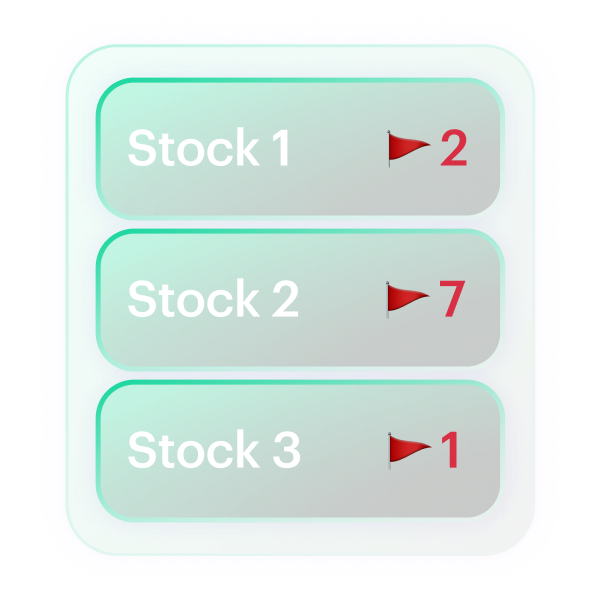Last Updated on Feb 10, 2022 by Ayushi Mishra
Stock trading involves two parties – a buyer and a seller. When you place an order to buy a share, it is not credited to your Demat account immediately. Similarly, when you sell your shares, the amount does not reflect in your account instantly. It takes a while as your trade order may or may not match with the opposite order of other parties. The process of matching the orders and effecting the transfer of funds is termed clearing and settlement, and it takes upto two days in India. Let us understand the different aspects of the process of clearing and settlement in the stock market.
Table of Contents
This article covers :
- What is the clearing and settlement process?
- How does the clearing settlement process in the stock market work?
- Aspects to consider as an investor
- Advantage and importance of clearing and settlement process
- Clearing houses in India
What is the clearing and settlement process?
In the Indian stock market, the trading between the buyer and the seller is completed on a ‘T+2 days’ basis. T-day or trade day (or trading day) is the day on which the trade is executed. The ‘T+2 days’ is the time it takes for the broker and the stock exchanges to match the order, facilitate the debit of shares and credit of money and reflect these in the respective account of the buyer and seller. This process of balancing the books is called clearing and settlement in the stock market, and it enables the proper transfer of funds and securities from one party to another.
In clearing, the security that is owed to the buyer is identified and the amount of money that is owed to the seller is calculated. While this sounds simple, we are bound by our example of two people – a buyer and a seller. In reality, there are many traders, each effecting multiple trades throughout the market sessions. This is why it takes T+2 days.
A clearing house which is an independent entity manages this whole process of clearing the trades on behalf of stock exchanges.
The clearing process leads to the next step – Settlement
The ‘settlement’ is the actual exchange of securities and funds between the two parties of a transaction, completing the financial obligation. The individual accounts are updated for the shares received and the money received, and the trade is considered ‘settled.’
Generally, a stock trade in India gets settled on a ‘T+2’ days basis. Bonds, government securities, and money market instruments settle on a ‘T+1’ basis.
How does the clearing and settlement process in the stock market work?
Here you will understand the trade settlement process for both the buyer and the seller.
Let us take an example. A buyer bought ten shares from a company for Rs 1,000 each. The date of buying the shares is known as a trade day or T-day.
Day 1 (T day)
On this day, the broker will debit the amount from the buyer’s trading account or linked bank account for buying the shares and credit it to a clearing house account. The broker will charge a brokerage fee, transaction charges, and other fees to the buyer’s account.
Likewise, the broker will block the shares in the Demat account of a matched seller and credit the shares to the clearing house account. The seller would not be able to sell the shares again after blocking the shares.
Day 2 (T+1 day)
On this day, the broker does not perform transactions. If the buyer wants to sell back the shares, they may (and this will trigger another round of clearing and settlement). The seller however cannot buy back the same shares that they sold on “T day.” The clearing house, on T+1 day, transfers the shares and funds to the broker.
Day 3 (T+2 day)
The ‘T+2’ is the final day for the settlement of the transactions. On this day, the final exchange of securities and funds transfer takes place between the buyer and seller. At the end of the day, the broker credits the funds in the seller’s bank account. Similarly, in case of our example, it would add 10 shares to the Demat account of the buyer.
After crediting the shares and funds in the account of buyer and seller, respectively, the trade stands settled.
Aspects to consider as an investor
If you are dealing with the stock market as an investor, you will encounter a clearing and settlement process. Therefore, you need to consider the following things:
Demat account requirement
Before trading, you are required to open a Demat account with a registered stockbroker. Most brokers offer an online Demat account at low brokerage charges.
Knowledge about brokerages
The buyers and sellers cannot trade in the stock market without brokers. Different brokers charge different brokerage fees from the investors and traders. You should compare the charges of different brokers while opening your Demat and trading account.
Basic knowledge of stock trading
The settlement process only facilitates the exchange between the seller and buyer. To trade in the market, you must know the trading fundamentals.
Advantage and importance of clearing and settlement process
Under the new trading system, the stock market participants are enabled to digital buying and selling. The advantages for the investors are as follows:
- It allows you to buy and sell shares and stocks at a secure and fast pace.
- Ownership of securities transfer immediately and in accounts within a short period.
- It ensures smooth trading for market participants.
- The digital trade settlement reduces the time and effort while trading.
- It does not require visiting any broker physically.
- The digital clearing and settlement eliminates the paperwork.
Clearing houses in India
Following are few clearing houses in Indian stock market for providing trade settlement services to the buyer and sellers:
- Metropolitan Clearing Corporation of India Ltd.
- India International Clearing Corporation Ltd.
- National Commodity Clearing Ltd.
- Multi Commodity Exchange clearing Corporation Ltd.
- Indian clearing corporation Ltd.
- NSC IFSC Clearing Corporation Ltd.
- National Securities Clearing Corporation Ltd.
These are some important clearing and settlement agencies in India that operate under the registered exchanges.
The clearing houses do not have a direct link with the investors. These agencies interact with the brokers only. The brokers facilitate the transaction between the clearing corporations and the buyer or seller of the securities.
Bottom line
Stock trading and its settlement process has undergone mammoth changes in the past few decades. Today, India is home to the advanced clearing and settlement procedures that enable a fast and smooth trading experience for investors. SEBI and the stock exchanges, in partnership with the clearing houses, are constantly striving to make the process even faster, aiming for a T+1 day settlement.
- Hedge Funds in India: Types, Features, and Benefits - Apr 15, 2025
- SBI Equity Mutual Funds – List of Top Performing Schemes for 2025 - Mar 27, 2025
- List of Overnight Mutual Funds in India (2025) - Mar 17, 2025




